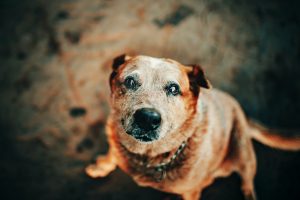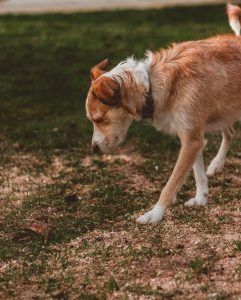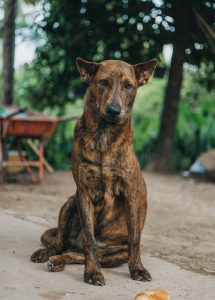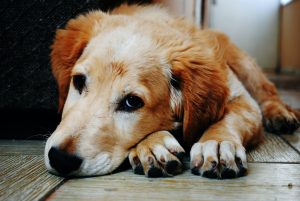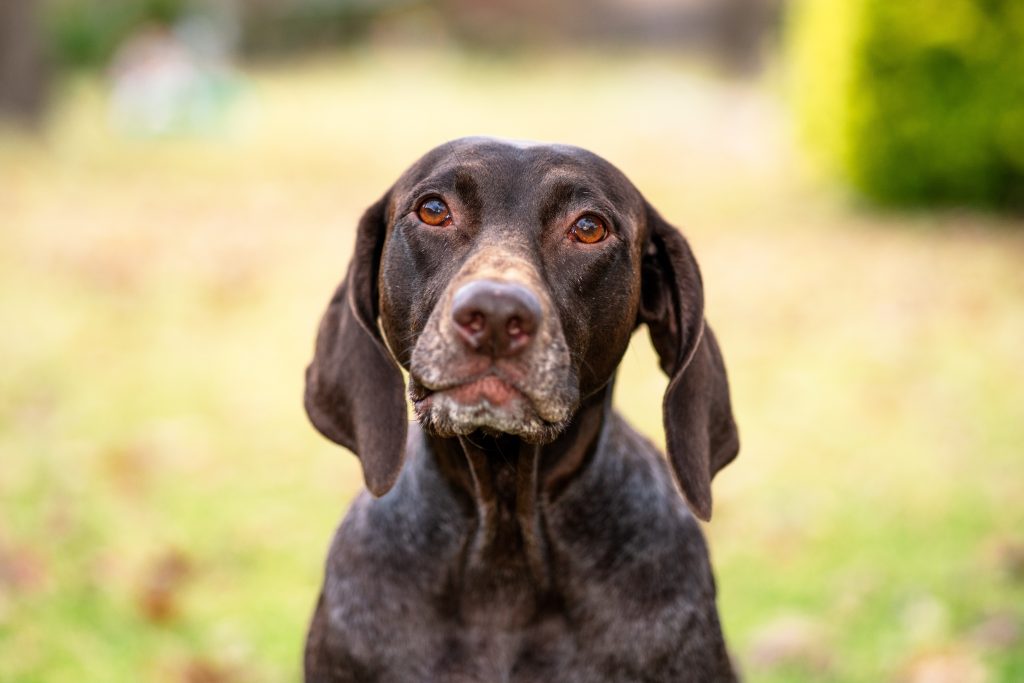
Posts by:
Dr. Mike Paul, DVM
Dog Diseases & Conditions A-Z
One of the most common problems we see in veterinary medicine is gastrointestinal (GI) upset/diarrhea. Sometimes it surprises me how quickly some clients will rush their dog to the clinic because of a little soft stool. I’m sure part of it is because they don’t want to be cleaning up messes all over the house, but it is also because they are genuinely concerned that the cause may be something serious. So what causes diarrhea in dogs? When should you worry and consult your veterinarian? What can you do at home before you see the doctor?
Causes of diarrhea in dogs
This would be an extremely long list if we went into everything that can cause your dog to have loose stools, but here are some of the top causes:
- Parasites– Intestinal worms can definitely irritate your dog’s gastrointestinal tract, causing all kinds of diarrhea involving the small and/or large bowels. Significant numbers of diarrhea-causing parasites are more common in young puppies.
- Infections– Viral or bacterial infections can also cause diarrhea and also occur more frequently in younger dogs.
- Dietary indiscretion or diet change– A purposeful change in diet from one food to another as well as eating something new/inappropriate (from bacon to grass to rocks) can cause irritation or trauma, resulting in diarrhea.
- Stress– Just like with people, stress/anxiety/excitement can result in GI upset (especially lower bowel irritation or colitis).
- Primary inflammatory disorders– Like inflammatory bowel disease in people, inflammatory disorders can cause your dog to develop diarrhea.
- Metabolic diseases– Metabolic diseases may include disorders of the pancreas, liver or thyroid. There are many other problems that upset the motility or environment in the GI tract resulting in diarrhea.
- Medications/toxins– Most pet parents know that certain antibiotics can upset the GI tract, but other medications and certain toxins can also cause diarrhea.
What can you do to help stop diarrhea in dogs?
Obviously some of these causes require specific therapy, but some of them may resolve on their own with simple supportive care. In those cases what might your veterinarian suggest that you do at home?
- Continue to feed— Years ago it was thought that GI upsets required some brief period of fasting to ‘rest’ the bowels. That is true with vomiting, but nowadays we realize that your dog’s intestines need nutrition in order to heal themselves. So don’t withhold food unless your doctor prescribes a fast
- Choose the right diet— Increasing fiber intake may be an option since it is considered a great ‘equalizer’ (good for constipation but also good for diarrhea). I think it is best to go with multiple smaller meals (say 4 a day) of something that’s easily digestible. That means a low fat, mostly carbohydrate diet: potatoes, pasta, rice with a little bit of chicken, turkey, low fat cottage cheese or yogurt. [Editor’s Note: Ask your veterinarian before making any changes to your dog’s diet.]
- Ask your veterinarian about medications— You should never assume human medications are safe for dogs. Ask your veterinarian what is safe and for specific dosage instructions.
When is diarrhea in dogs an emergency?
First of all, you know your dog best. If you are concerned, do not hesitate to contact your veterinarian. That is what your vet’s there for: to advise you. Be aware that there are some aspects of diarrhea that are more alarming, and some consequences that can be quite concerning.
To start with, one way to classify diarrhea is as either small bowel or large bowel diarrhea:
- With small bowel diarrhea you are more likely to see large volumes or watery diarrhea which can quickly lead to significant dehydration and electrolyte imbalance.
- Large bowel diarrheas involve the lower bowel or colon. You more typically will see a dog straining and uncomfortable, but passing only small amounts of soft, mucoid, sometimes-bloody stool.
Generally, if your dog had one somewhat soft stool but is still happy, playful and eating normally, you can probably safely wait to see what the next bowel movement looks like before taking any major steps.
However, the following red flags are all reasons to take things more seriously:
- Loss of appetite or thirst
- Lethargy/depression
- Pain/discomfort
- Blood in the stool (either dark, blackish stool or visible, frank, red blood)
- Associated vomiting
- Reduced or absent urinations
Your dog is more likely to be quickly compromised by ongoing diarrhea if:
- Very small
- Very young
- Very old
- Already battling some other medical problem
In these cases, you should consult your veterinarian right away. Even if the ultimate cause of the diarrhea is not anything serious, getting that diagnosis and beginning therapy are important steps. If the diarrhea appears to be the large-volume, small-bowel-type, then your dog will likely benefit from at least some supplemental fluid and electrolyte administration, and probably other anti-diarrheal medications. With large bowel diarrhea, your dog may be supremely uncomfortable and the continued straining will only make the irritation worse. In that case, your veterinarian can administer medications to ease the discomfort and to make your dog feel better more quickly.
